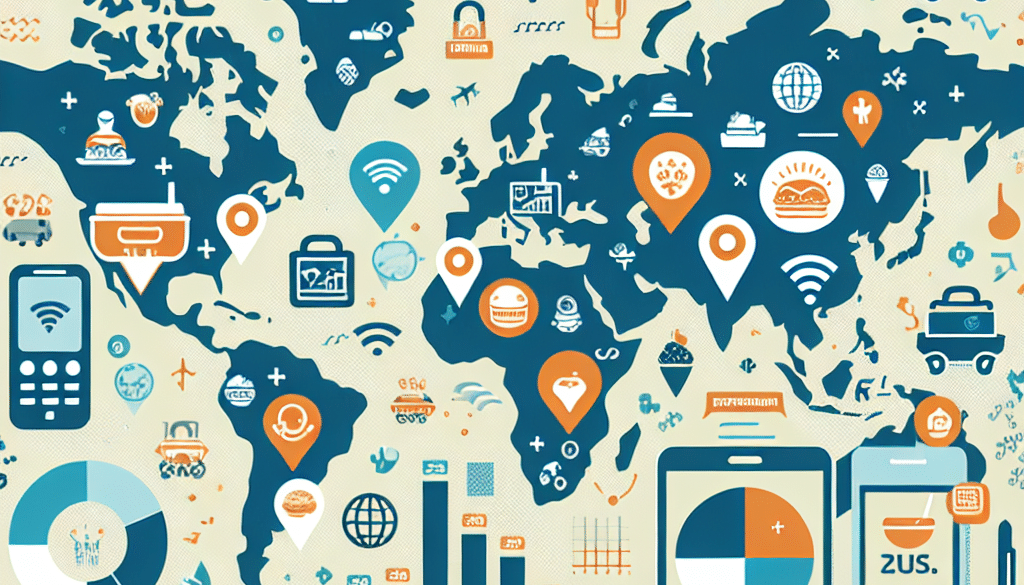Foodservice Delivery Global State: Industry Analysis
-
Table of Contents
- Foodservice Delivery Industry Analysis: A Global Perspective
- Current Landscape of Foodservice Delivery
- Technological Advancements Shaping the Industry
- Challenges Facing the Foodservice Delivery Industry
- Case Studies and Success Stories
- Future Outlook and Trends
- Conclusion
- ETChem’s Protein Products for the Foodservice Industry
Foodservice Delivery Industry Analysis: A Global Perspective

The foodservice delivery industry has undergone a significant transformation over the past decade, with the advent of digital technology and changing consumer behaviors driving growth and innovation. This article provides an in-depth analysis of the global state of the foodservice delivery industry, examining current trends, challenges, and future prospects.
Current Landscape of Foodservice Delivery
The foodservice delivery market has expanded rapidly, becoming an integral part of the dining experience for consumers worldwide. The convenience of ordering food with just a few clicks has revolutionized the way people eat, leading to a surge in demand for delivery services. This section explores the current state of the industry, including market size, key players, and consumer preferences.
- Market Size and Growth: The global food delivery market is expected to reach a significant value by 2025, with an impressive compound annual growth rate (CAGR).
- Key Players: Companies like Uber Eats, DoorDash, Grubhub, and Deliveroo dominate the market in various regions, each with its unique business model and market strategy.
- Consumer Preferences: Convenience, variety, and speed are the top priorities for consumers when it comes to food delivery, influencing how companies operate and compete.
Technological Advancements Shaping the Industry
Technology has been a driving force behind the growth of foodservice delivery. Innovations such as mobile apps, artificial intelligence, and data analytics have enabled companies to enhance customer experiences and streamline operations. This section delves into the technological trends that are shaping the industry.
- Mobile Apps: The widespread use of smartphones has made mobile apps the preferred platform for ordering food, offering ease of use and personalized experiences.
- Artificial Intelligence: AI is used for predictive analytics, personalized recommendations, and chatbots that improve customer service.
- Data Analytics: Big data helps companies understand consumer behavior, optimize delivery routes, and manage inventory more efficiently.
Challenges Facing the Foodservice Delivery Industry
Despite its rapid growth, the foodservice delivery industry faces several challenges that could impact its future. This section discusses the obstacles that companies must navigate to maintain growth and profitability.
- Regulatory Hurdles: Governments worldwide are introducing regulations that affect delivery operations, from worker classification to environmental concerns.
- Competition and Market Saturation: The influx of new entrants and the expansion of existing players have led to intense competition and market saturation in some areas.
- Profitability Concerns: High operational costs and low margins pose significant challenges to profitability, especially for standalone delivery services.
Case Studies and Success Stories
Several companies have successfully navigated the complex landscape of foodservice delivery, setting benchmarks for others to follow. This section highlights case studies and success stories that illustrate effective strategies and innovative approaches.
- Case Study 1: A detailed analysis of a leading delivery service’s successful expansion into new markets.
- Case Study 2: How a regional player leveraged local cuisine and culture to carve out a niche in the competitive market.
- Success Story: The journey of a startup that disrupted the industry with a unique business model or technology.
Future Outlook and Trends
The future of foodservice delivery is poised for continued innovation and growth. This section explores emerging trends and what they mean for the industry, including sustainability initiatives, drone delivery, and the integration of delivery services with other sectors.
- Sustainability Initiatives: Eco-friendly packaging, zero-emission delivery vehicles, and waste reduction efforts are becoming increasingly important.
- Drone and Robot Delivery: Autonomous delivery methods are being tested and could revolutionize the speed and cost of delivery.
- Integration with Other Sectors: Partnerships with grocery stores, meal kit services, and even pharmaceuticals are expanding the scope of delivery services.
Conclusion
In conclusion, the foodservice delivery industry is at a pivotal point, with technological advancements and changing consumer behaviors driving growth. However, companies must navigate regulatory challenges, intense competition, and profitability concerns to succeed. The industry’s future looks bright, with sustainability, innovation, and integration set to shape the next phase of foodservice delivery.
ETChem’s Protein Products for the Foodservice Industry
As the foodservice delivery industry continues to evolve, there is a growing demand for high-quality ingredients that can meet the diverse needs of consumers. ETChem’s protein products, including various types of collagen, are ideal for businesses looking to enhance their offerings with nutritious and versatile ingredients. Their products are perfect for use in a range of applications, from health-focused meal options to innovative beverage creations.
About ETChem:
ETChem, a reputable Chinese Collagen factory manufacturer and supplier, is renowned for producing, stocking, exporting, and delivering the highest quality collagens. They include marine collagen, fish collagen, bovine collagen, chicken collagen, type I collagen, type II collagen and type III collagen etc. Their offerings, characterized by a neutral taste, instant solubility attributes, cater to a diverse range of industries. They serve nutraceutical, pharmaceutical, cosmeceutical, veterinary, as well as food and beverage finished product distributors, traders, and manufacturers across Europe, USA, Canada, Australia, Thailand, Japan, Korea, Brazil, and Chile, among others.
ETChem specialization includes exporting and delivering tailor-made collagen powder and finished collagen nutritional supplements. Their extensive product range covers sectors like Food and Beverage, Sports Nutrition, Weight Management, Dietary Supplements, Health and Wellness Products, ensuring comprehensive solutions to meet all your protein needs.
As a trusted company by leading global food and beverage brands and Fortune 500 companies, ETChem reinforces China’s reputation in the global arena. For more information or to sample their products, please contact them and email karen(at)et-chem.com today.




